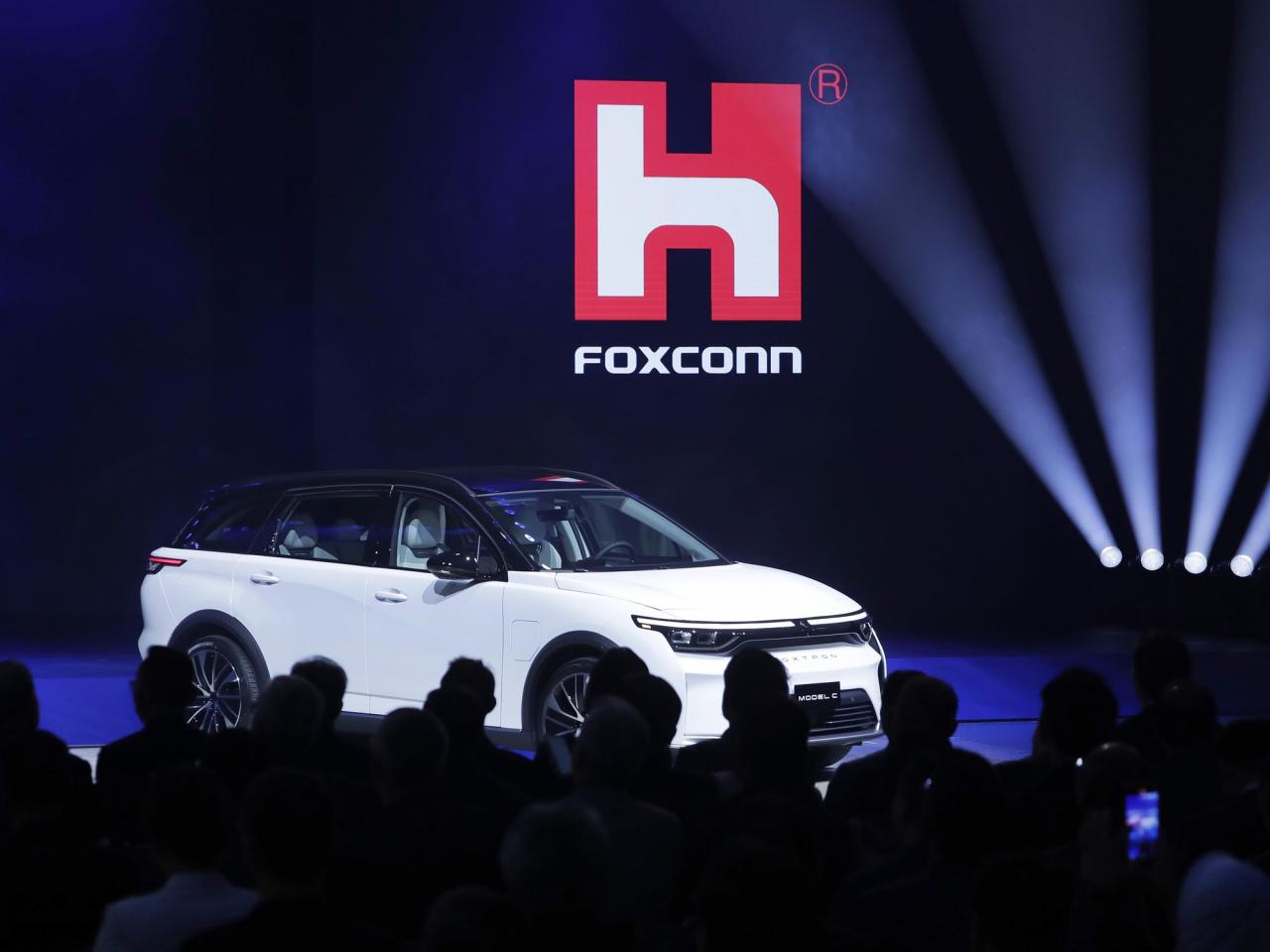Taiwan iPhone maker Foxconn sets its sights on the ever more crowded EV market
BANGKOK (AP) — Auto industry newcomers like Taiwan-based iPhone maker Foxconn and China’s Huawei Technologies are maneuvering to gain an edge in the electric vehicle sector, prompting automakers like Japan’s Nissan and Honda to announce plans to join forces against a flood of ambitious competitors.
Also known as Hon Hai Precision Industry, Foxconn has been snapping up links in the automotive supply chain, one of a growing number of technology companies that are leveraging their knowhow in electronics and communications.
Foxconn’s auto venture with Taiwan automaker and importer Yulon Motor Co., Foxtron, showcased its Model B, a sleek EV hatchback, as well as its automotive electronics, at the Consumer Electronics Show in Las Vegas last week.
Honda and Nissan announced in December that they plan to seek a merger, a move that reports said may have partly been driven by Foxconn’s interest in Nissan.
Here’s an update on Foxconn’s auto ambitions.
Whether or not Foxconn wanted to make a bid for Nissan, it has big ambitions, saying it eventually intends to make four of every 10 EVs sold in the world. The contract manufacturer has invested nearly $1.3 billion in auto-related acquisitions in the past decade, according to Mergermarket, a merger and acquisitions research firm.
In addition to Foxtron, its automaking joint venture with Taiwan’s Yulon Motor, it has a 50% joint venture with Stellantis NV to design and sell automotive semiconductors and a 50% joint venture with Germany’s ZF Friedrichshafen AG, a major auto supplier, to make passenger car chassis. It has invested in Indigo Technologies, which is commercializing a road sensing system developed at MIT. It also has a collaboration agreement with Blue Solutions to develop solid state batteries and has a collaboration with Italian auto designer Pininfarina.
Foxconn holds a 34% stake in Japanese electronics company Sharp, which has been inching toward the automotive sector. This year, Foxconn and Sharp introduced an LDK+ (living, dining, kitchen) concept vehicle, a boxy minivan that converts to a living space with solar and storage battery and a big LCD screen.
“Leveraging a plug-and-play strategy similar to its electronics operations, Foxconn’s foray into electric vehicles is a pre-emptive move in anticipation of the increasing convergence of electronics and automotive technologies,” Vivian Wong, head of Mergermarkets’ M&A Analytics for the Asia Pacific, said in an emailed comment.
China’s Huawei Technologies, smartphone and appliance maker Xiaomi and e-commerce giant Alibaba and Baidu also are scaling up their EV operations, relying on their scale and strength in advanced technologies as vehicles become ever more computerized.
Huawei has several EV joint ventures in what it has dubbed its Harmony Intelligent Mobility Alliance, including Luxeed brand EVs with Chery Automobile and Aito brand EVs with Seres Group. Its joint venture with JAC Motor, an automaker based in eastern China’s Anhui province, has announced plans to compete with luxury brands such as Rolls-Royce and Mercedes Benz AG.
Some Japanese electronics companies also are jumping on the bandwagon. Apart from Sharp’s partnership with Foxconn, entertainment and technology giant Sony Corp. has an EV joint venture with Honda that plans to introduce the EV Afeela sedan for pre-sale this year.
The increasing reliance on connectivity between cars, phones, laptops and televisions has lured such companies into a market that is quickly being transformed by electrification, even if inroads into some markets have stalled due to tariffs and other factors.
Nissan introduced the Leaf, the first mass-market EV, in 2010 and has strong EV technology, vehicle platforms and sales capacity that would appeal to a newcomer like Foxconn.
Reports by Japanese media and by Taiwan’s Central News Agency said Hon Hai’s chief strategy officer, Nissan veteran executive Jun Seki, visited France for talks with France’s Renault SA, which holds a 15% stake in Nissan and more shares held in a French trust. Seki is a former chief operating officer of Nissan and former president of Dongfeng Nissan, a joint venture in China.
In formally announcing plans to attempt a merger with Honda, Nissan Motor Corp. CEO Makoto Uchida said Foxconn had not directly approached his company about a possible merger. Foxconn did not respond to requests for comment.
Nissan’s internal woes are a small part of the bigger challenge posed to all major automakers by the ascent of Tesla, which makes more than half of its EVs in China, and Chinese automakers like BYD in an industry so competitive that more than a dozen Chinese EV makers have already folded, bested by bigger and stronger companies that got into the game before them.
As the pace of sales growth slows, with car buyers questioning the affordability and convenience of switching to electrics, the going has been rough, and Foxconn has a long way to go before it can compete with industry leaders like BYD and Tesla.
It was set to manufacture the Endurance battery EV truck at a former General Motors plant in Lordstown, Ohio, which it acquired in 2023. Lordstown Motors Corp. then filed for bankruptcy. Foxconn also set up a partnership in 2021 with Fisker Inc., maker of the Ocean EV truck, that called for making up to 250,000 vehicles. Fisker filed for Chapter 11 bankruptcy protection in June.
But the company appears undaunted.
Foxconn lists six models of EVs on its website, including its Model T bus, Model V pickup truck, Moden N van, its Model B, and its “luxury flagship” Model E sedan.
Source: wral.com
